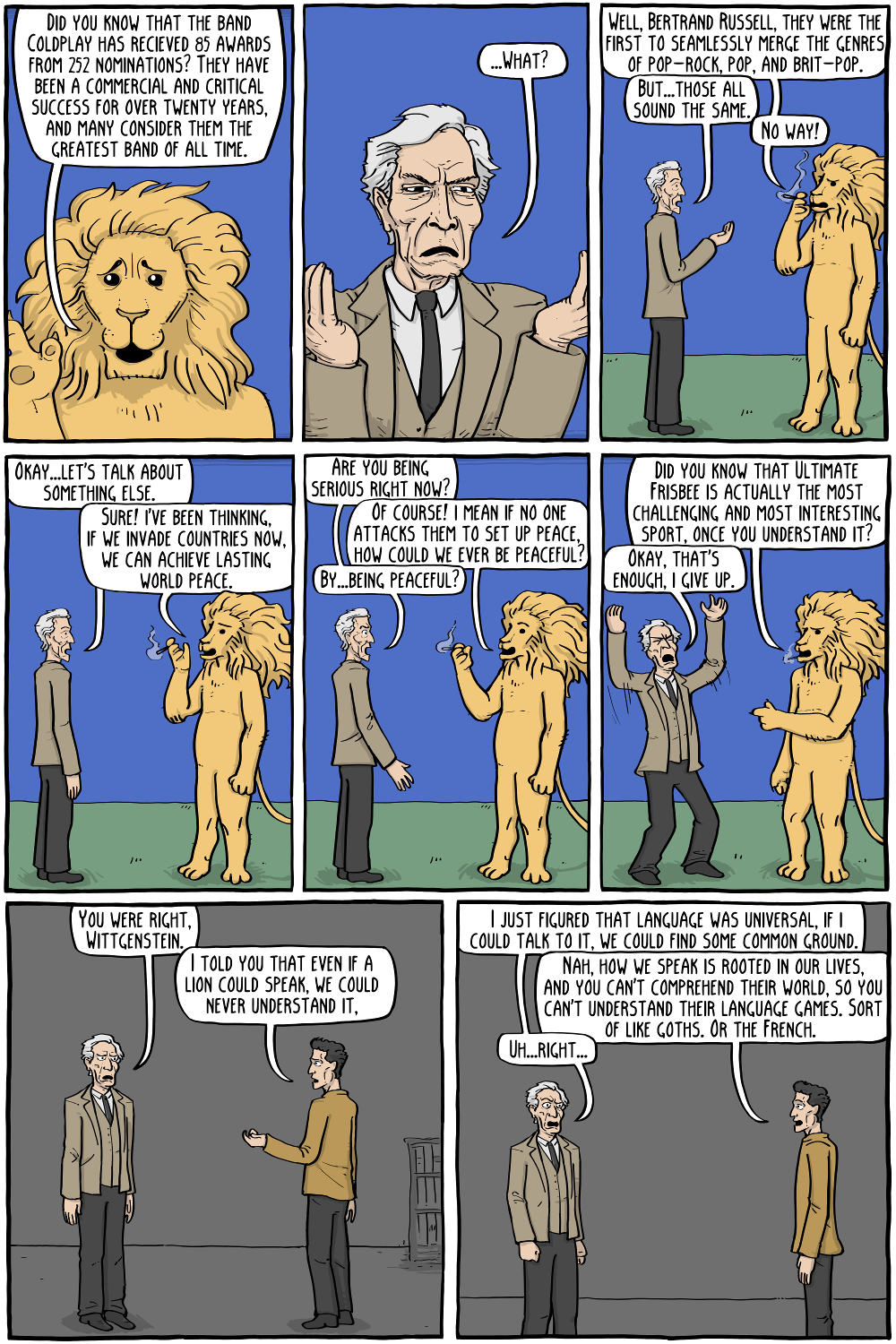
In Philosophical Investigations Wittgenstein famously said that "if a lion could speak, we could not understand him". This seems contradictory, because of course if he is speaking, it seems like we would understand him. But for Wittgenstein, the words themselves don't so much convey meaning, but express intent that is confined within a particular situation that takes place within our shared culture and experience. So, for example, if a surgeon is performing surgery and said "nurse, scalpel", it isn't simple the two words together that convey the meaning of the surgeon wanting the nurse to hand him a scalpel, it is their shared knowledge of what a surgery is, and what is expected under those circumstances. If, for example, the nurse and surgeon are later at a company dinner, and the surgeon says "nurse, salt", in the same cadence, this will be understood to be a joke, parodying the former circumstance. Nothing about the words themselves really conveys this, but only the shared world that both the nurse and surgeon occupy. This shared world is necessary for any language to function, and learning a language is not only learning the words, but the world in which we are expected to use the worlds.
On the hand, if a lion could suddenly speak English, it wouldn't matter much, because the world that the lion exists in is so divorced from ours, that his expressions, desires, and intents could still never be communicated. The lion doesn't know what a surgery is, or a dinner party, or a joke for that matter. Likewise, we don't know what sort world the lion occupies, so words would be useless. This phenomenon isn't as outlandish as it might sound at first, and even occurs frequently among humans. For example, I had two coworkers who played World of Warcraft constantly, and would talk about it at lunch. They could speak to each other for ten minutes, in English, and I wouldn't be able to decipher a single sentence. It isn't because I didn't understand the meaning of the worlds, but because I had no ability to relate the words to a situation or world that I knew, so the meaning was lost on me. If I can't understand a conversation about a video game I haven't played, even when I've played similar games, how can I be expected to understand a conversation between lions?
Permanent Link to this Comic: https://existentialcomics.com/comic/245
Support the comic on Patreon!










